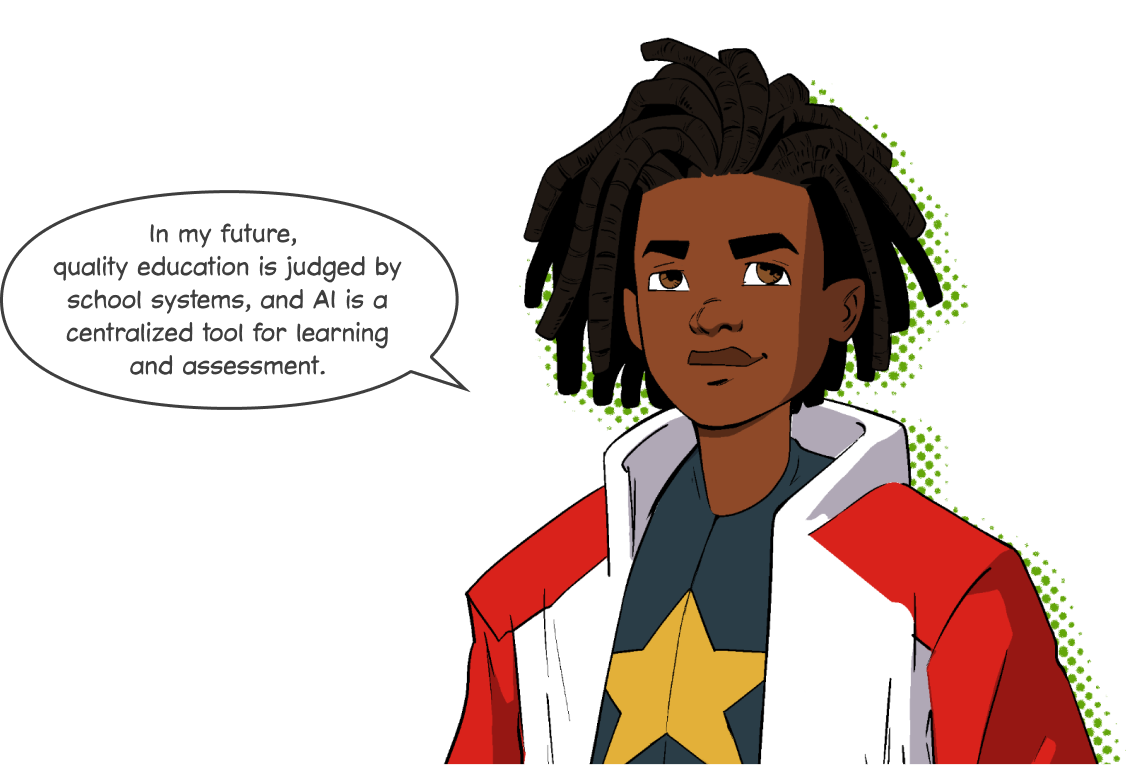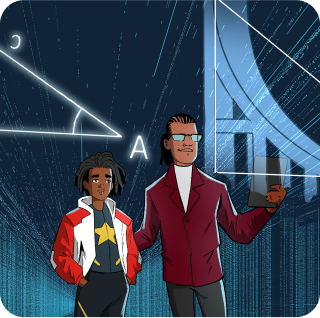We are committed to creating a future of assessment that more accurately captures the magic of learning––namely the spark of discovery that happens when educators and learners forge engaging connections, together.
The Story
It’s 2034. Public schools rely on AI-assisted learning playlists, instructional platforms and automated assessment services to streamline the management of learning and the attainment of state standards. Learning and assessment are consistent, efficient, and try to expand a more equitable approach to education. Efficiency and effectiveness are core guiding principles as public schools respond to the continued contraction of the teacher workforce and to the diversion of public funds to critical climate, public health and sustainability initiatives.
They use algorithmically-curated learning playlists that get to know learners and recommend learning modules and resources. These algorithms are derived from a more open approach, whereby the analytics that power them are able to simultaneously take in more forms of information, such as hand-drawn pictures, multilingual conversations, and spatial data derived from learning manipulatives. This removes the need for learners to be categorized by outdated systems that only look at race, ethnicity, ability, or income security, and instead look at more continuous patterns of learnings, such as a learners ’individual strengths and needs. Therefore, automated assessments respond to the ebb and flow of their learning, where learners have their own AI algorithm that is prescriptive and curates a learning management solution that aims to be customizable. AI is no longer used as a creative teaching tool that generates non-specified content, but it becomes a centralized tool used in schools to generate all learning content that strives to match that learner’s local context. This prescriptive learning experience does allow for a more intraoperative approach across learning management systems, where educators are able to spend less time having to generate a scaffolded learning experience across a wide variety of curricular and assessment products. However, it is experienced as a modular approach to learning where educators no longer have the ability to leverage their own creativity in producing learning experiences that are responsive and human-driven.




